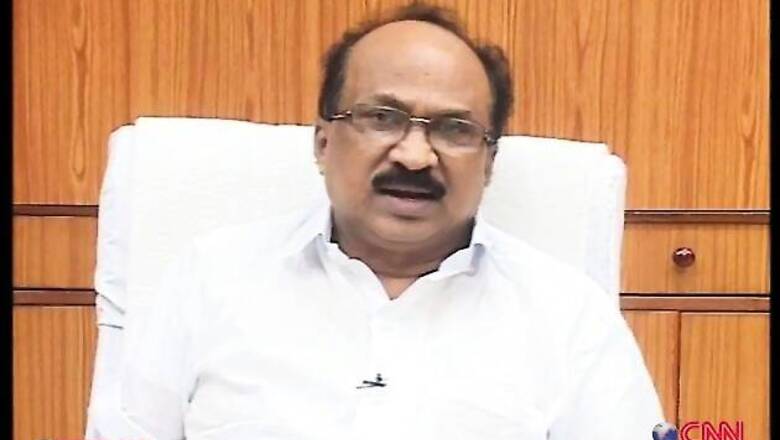
views
New Delhi: India's offer of an extra 5 million tonnes of wheat for export direct to private traders is at too high a price, traders said, undermining its own efforts to avoid rotting stocks and make room for the new harvest.
And with no guarantees shipments would take priority on the country's stretched railways and at congested ports, traders said they could see little appetite for the supplies.
"The government has missed a golden opportunity by not allowing private trade to export earlier as the base price mechanism is unlikely to work in a bearish market," said Tejinder Narang, adviser at New Delhi-based trading company Emmsons International.
The world's second-biggest producer is trying to cut massive stocks built up after bumper harvests and has already allowed 4.5 million tonnes of exports via lengthy tenders by state-run firms. It wanted to push shipments ahead of June 2013, when global prices could slide further with the arrival of Black Sea wheat.
"We have allowed these additional wheat exports for private trade for three months," Food Minister KV Thomas told reporters.
The extra volumes would come from the 2012 harvest, Thomas said, and would have a floor price of 14,800 rupees per tonne plus taxes -- a level traders said equated to around $314 per tonne free on board (FOB).
"The floor price is too high and it doesn't make any commercial sense to export. Today, buyers can lock deals at about $260 FOB for Black Sea which will be ready for delivery in the next three to four months. Who will buy?" said a Mumbai-based trader at the Indian unit of a global trading company.
Wheat prices slid again this week as Argentina also put 5 million tonnes on the export market, with US wheat near nine-month lows and European benchmarks around $300 per tonne.
The latest Indian tender dipped to $297 per tonne. Sales are mostly to the Middle East and Africa where the wheat is primarily destined for animal feed.
PORT BOTTLENECKS
Shifting such huge volumes in India -- a third of what top exporter the United States ships in a year -- will also put a big strain on rail and port capacity.
"If they are looking at large scale exports to take place in a short time, I doubt that could happen as ports are congested," said DP Singh, president of All India Grains Exporters Association.
The government had said it would prioritise its wheat shipments but there were no guarantees forthcoming on Thursday that exports by private traders would have similar treatment.
India has built up huge grain mountains to supply cheap food to the poor, but lack of sufficient secure storage makes them vulnerable to damage by rains and pests.
Rather than having to face embarrassing pictures of rotting grain stocks again, especially in the run-up to an election in 2014, the ruling Congress-led coalition government has opted for allowing exports.
But sales have been slow with only 3 million tonnes so far shipped in 2012, hampered by a cumbersome tender process run by state agencies, sliding global prices and the country's creaking transport infrastructure.
"Today's decision demonstrated that state-owned agencies alone can't offload the huge stockpiles from government reserves," said Prasoon Mathur, senior analyst with Religare Commodities.
Transport and railway ministers had joined the core farm, food and finance ministers to discuss export possibilities on Thursday.
"Had they done this before, people would have got enough time to export aggressively and the government could have got space vacated at the godowns (warehouses) for the new crop," Singh said.
The 2013 wheat harvest gathers momentum in April and farmers are expected to produce 92.3 million tonnes, the sixth straight year of output surpassing domestic demand of about 76 million tonnes. This harvest does not come under the export scheme. "We will review the situation after three months," Thomas said.




















Comments
0 comment